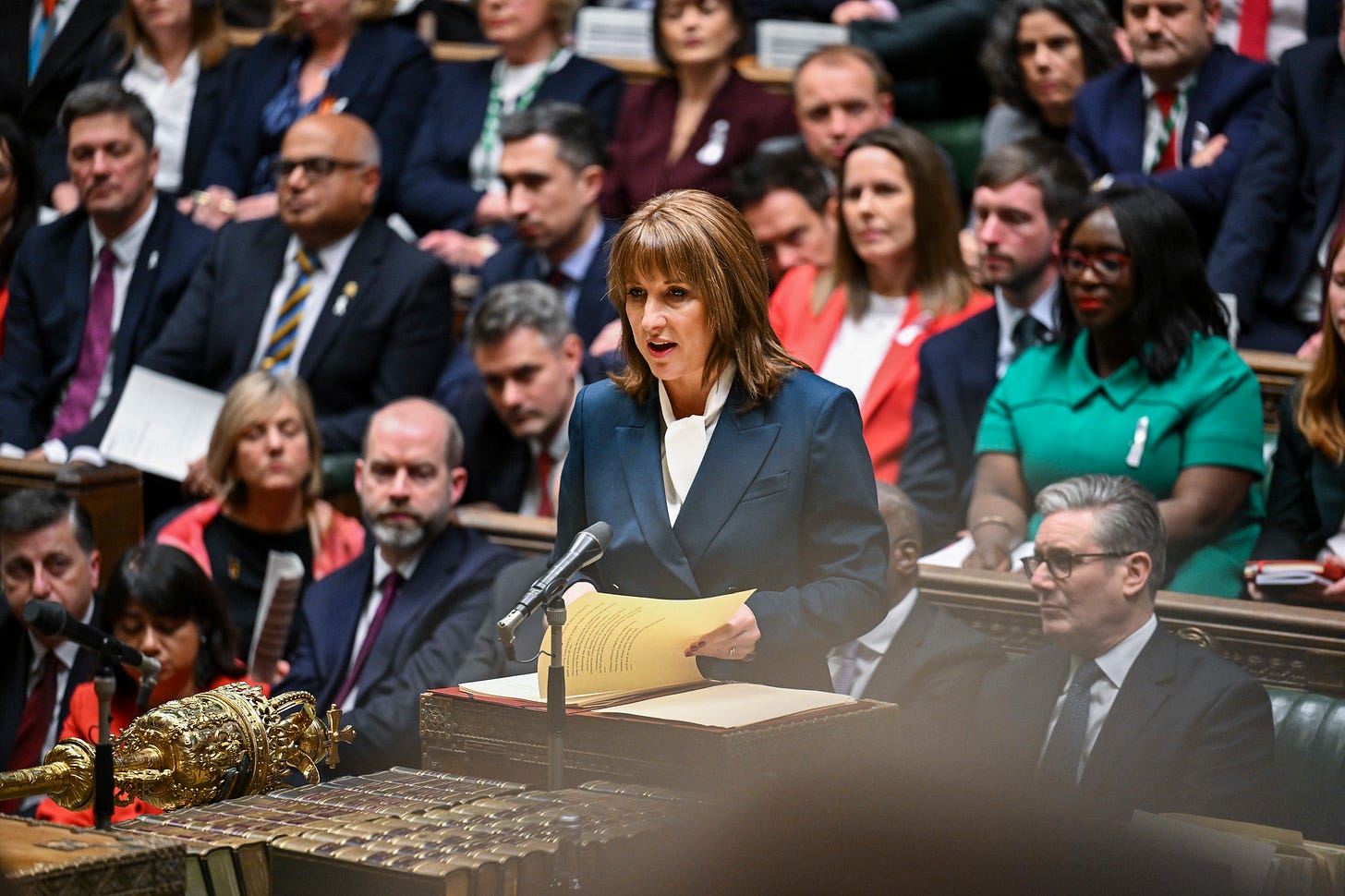Backbenchers and the bond market
Both seemed to like Rachel Reeves' Budget. How long can that hold?
There were two primary audiences for yesterday’s Budget: Labour MPs and the bond market. This makes a certain amount of sense. While the British public has the power to eject Labour from office, they can’t actually do so until 2028 or 2029. MPs and investors could force a change at the top almost any time.
As it happens, both were largely placated. Backbenchers liked the lifting of the two-child benefit cap, rail fare freeze and the surcharge on properties in England worth more than £2m. Meanwhile, investors were content that the chancellor more than doubled her fiscal headroom to £22bn.
Consequently, Rachel Reeves, who had been under tremendous pressure, will be pleased with how the Budget landed. We’ll see how long that lasts.
The end of the good news
There used to be a fairly tried and tested method for running the UK government. You won office on a set of moderate promises and vibes, raised taxes early on in the parliament and set about selective reforms to the British state. Of course, these tax rises and reforms were often unpopular — entrenched incumbents don’t like change and no one wants to pay more tax. But it often worked.
The idea was that, come the final year of the parliament, the chancellor would be in a position to deliver a tax-cutting Budget, while the prime minister could point to tangible improvements in the public services. The last administration to actually do this was the Cameron-Osborne government which, you may recall, won re-election. Curiously, none have tried it since. And going by yesterday’s performance, Reeves is not minded to bring it back.
Make me chaste, Lord. But not yet.
The chancellor announced tax rises worth £26bn, including an extension to the freeze on personal tax thresholds. But there are a couple of problems. First, many of the taxes have highly uncertain outcomes, either because they are new and therefore untested, or because they will drive behavioural change. And second, many will only come into effect from 2028 i.e. just before the next election. And at the same time that tax rises are backloaded, the spending on things like the two-child benefit cap is frontloaded.
Keep reading with a 7-day free trial
Subscribe to Lines To Take to keep reading this post and get 7 days of free access to the full post archives.



